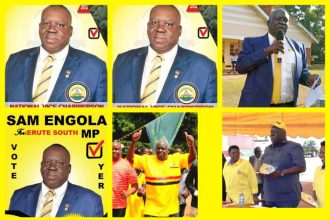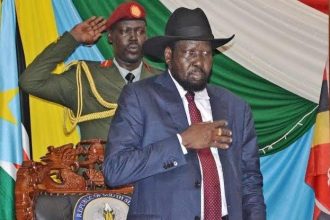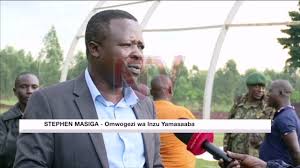The Ministry of Gender and Social Development has an uphill task to ensure that various Ugandan communities and tribes understand the mother texts that regulate various cultural institutions in Uganda.
The Cultural Leaders Act regulates and guides how communities install cultural leaders. For example, some of the communities in Uganda with gazetted Cultural Leaders include the Bamasaba people, the Bateso, the Kumam, the Acholi, the Baruli, and the Bamba of Kasese.
Some of the notable texts that regulate traditional and customary institutions in Uganda include the Constitution of Uganda, particularly Article 246 in its entirety, and the Cultural Leaders Act 2011, among other national policies and regulations on cultural and traditional leadership.
I have noted with dismay how people as high as Resident District Commissioners (RDCs) are failing to appreciate the importance of such national laws in regulating the Bamasaba people and other tribes with such leadership.
Lawmaking is not the preserve of everyone. There are particular persons and entities clothed with the authority to make laws for communities. Once such laws have been put in place, as citizens, we have a corresponding duty to abide by them and not become oppositional or conflictual towards them.
Among the Bamasaba people, there is limited appreciation of the various legal texts put in place to regulate the management of the Bamasaba Cultural Institution (Bukuka). The efforts by Umukuka III to realign the Bukuka to national laws are meeting resistance from some sections, including some Resident District Commissioners, whom I will not name for cultural and ethical considerations.
There are Bamasaba who do not believe in the Cultural Leaders Act 2011 due to complete ignorance of the text. The Ministry of Gender, where necessary, must come out openly to ensure that the laws regulating all cultural institutions in Uganda are given sufficient emphasis and prominence so that the communities and other cultural actors come to understand them.
I also think it is imperative to popularize such laws even in our local languages for the purpose of disseminating them to the general population.
I have been keenly following, and occasionally participating, in the Inzuyamasaaba WhatsApp forum. The lack of appreciation for national laws is a pitiful sight, to say the least.
All stakeholders, right from local governments, members of parliament, cultural institutions, and the general public, must equip themselves with some basic knowledge of these laws. Short of this, we are entering a conflict zone.
Cultural institutions have norms, mores, customs, and practices. These practices vary from community to community, and there is no need to write them all down, as each community knows and follows what its ancestors practiced.
The Inzuyamasaaba constitution may have been relevant in the formative days of the Bukuka, but it was eventually superseded by the Cultural Leaders Act, the Constitution of Uganda, and the National Cultural Policy 2019, among others.
Currently, with or without the Inzuyamasaaba constitution, we can have a Bukuka (cultural leader) in place since there is an enabling provision for it put in place by the government 14 years ago.
In 2014, while gazetting the Umukuka I of the Bamasaba community, the very laws that were cited were the Constitution of Uganda and the Cultural Leaders Act 2011.
Let us therefore popularize these laws using all platforms in Uganda to give the Cultural Leaders Act the much-needed public awareness and reach out to our people at the grassroots level.
The resolution of conflicts concerning who was properly elected is provided for in the Constitution (Article 246) and the Cultural Leaders Act (Section 15). The payment of salaries or allowances to cultural or traditional leaders, the roles of cultural leaders, and the limits of their authority (including the authority to hire a few assistants) are also spelled out there.
The gazetting of the cultural leader (Section 6 of the Cultural Leaders Act) is done by the Minister of Gender. The Minister of Gender is also given the ongoing legal authority to make policies to regulate cultural institutions from time to time. All of this must be well communicated to our people.
Later, after we have comprehended these laws, we shall outline the various loopholes within them.
Steven Masiga is the spokesperson for Inzuyamasaaba. Tel: 0782231577.




















